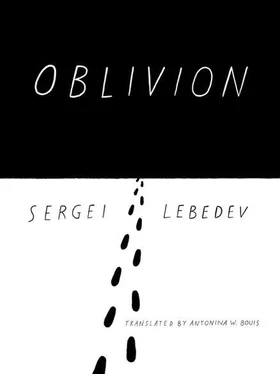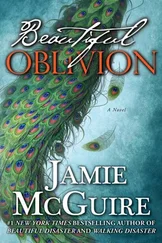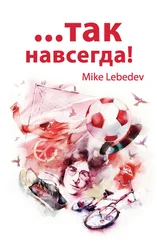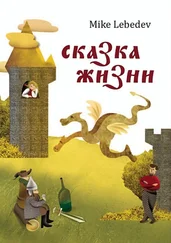You could say that the letter writer had discovered a new unity beyond nationality and beyond culture—the unity of people with guns, the unity of pure force, and he enjoyed embodying pure force with no ideological coloration. He must have been pleased imagining arsenals growing and weapons rooms filling up; pleased reading about a new missile or new cannon in the newspaper—they were all merely forms of force, a force without content, force per se, and he had decided as a youth to be part of force—the most imperceptible part, the most impersonal part, without ambition and in that sense safe for the integrity of the force.
Obliquely it was clear that the writer was once very close to Grandfather II; this was obvious from the missing details and information that sometimes made the letters unclear and which Grandfather II apparently knew. Judging by the postmarks, the letters were around thirty to forty years old; the penultimate one came a few months before his death and the last one after Grandfather II had died; that one mentioned a meeting with Grandfather II and it mentioned me, too, as if the writer had seen me. Try as I could, I couldn’t remember anything; all I had was the return address—a street in a small northern city that had a huge mining complex, which I had heard about when I worked as a geologist.
I reread the letters in case I had missed something; seal blubber, bear fat—I imagined Grandfather II taking spoonsful of smelly jellied fat, too natural, untamed by cooking; the fat smelled of musk, subcutaneous glands, meat, blood, fur, smelled of animal, and in order to eat it you would have to overcome disgust, one which was greater than ordinary disgust: it expressed human prohibitions and crossing them brought you closer to being a wild beast.
I remember the time on an expedition after a long period of hunger we shot a deer and started eating the fresh liver; after a week of bad weather the sun was flickering in the leaves, and I felt the same warm flicker inside me of the life force, how the fading life of the deer was directly passing into my muscles, and the muscles were responding with readiness to race, grab, tear apart. The sun illuminated the river bottom, and the smooth deep water gave off the power of the current, the wind bent the birches, and I felt the current of natural forces passing through me, I was one with the water, the wind, I was a cluster of desires, translucent and thick, like the sunlight of August in the taiga. I was running and grabbing—and a minute later, I got a cramp, not from the raw liver, my stomach had accepted that, but because I had fallen into an animal state and now my humanity was being painfully restored.
Seal blubber, bear fat, the secret of Grandfather II’s longevity smelled of ancient blood, the letters smelled of blood, and I no longer wanted to know what was in his past; just to leave the apartment, throw away the keys, let it stay there like a forgotten mousetrap, locked and sealed; if it had been a house instead of an apartment, I would have burned it down, like a plague house. Once again I sensed Grandfather II’s blood circulating in me, I could feel the short animal hairs growing, the too-hard nails growing; I wanted to gnaw meat from bones, ooze blood, suck out the marrow.
I recalled how once at the dacha an old woman from the village, who did not like the dacha owners for parceling out their garden allotments on the best berry and mushroom spot on the edge of the woods, in the most damp spot where she gathered St. John’s wort, chamomile, coltsfoot, melilot, bur-marigold, clover, raspberry leaf, and linden flowers, the old woman once met Grandfather II on the forest path. I was creeping after him and saw the look she gave him, with his folding chair, jug, and fishing reels, neat, with a handkerchief in his pocket, she looked at him and said loudly, “Werewolf!” Grandfather II unexpectedly replied loudly, “You’re demented, old woman,” and went on; he replied rather aloofly and rather disdainfully, the way a cranky old man might have responded to a nasty old woman he knew—she’ll wear you out with her nagging—but the old woman was neither nasty nor a nag, she was known for her silence, and she and Grandfather II had never exchanged a word before; I sat in the bushes, so the herb woman would not see me, Grandfather II walked on, and she watched him go, whispering something to herself.
Later I tried to get into her house; someone was sick and I offered to go get some herbs for a cold. The old woman let me into the house, too spacious for her alone; the timbered izba dwelling was big, made of logs you could barely embrace, and you could see that it had been built by a big family. In the middle stood an enormous whitewashed stove, which had spread like a woman of a certain age, cosmic in sensibility—everything rotated around it, it was the axis and the support, inside its womb buckwheat porridge stewed, soups cooked, and bread was born— karavai , a loaf as round as the fruitful sun, peasant bread; but the stove just made the emptiness of the rooms more pronounced and bitter. Through a hanging I saw a wall of photographs in one of the rooms—dozens of male and female faces, with the peasant gaze, concentrated and severe, as if having your photograph taken was hard work to be approached with full cognizance; for an instant the photographs made the izba full of people, talking, eating, coming in from the gardens, the fields, it filled up and emptied. While the woman went through her herbs, I searched for my knowledge of the force that swept all those people away, leaving the old woman to maintain the house as a memory of the departed; she gave me the herbs, dried, prickly, and explained how to pour boiling water over them; I wanted to say something consoling but realized that there is a deadline for sympathy and condolences, there is a deadline for commiseration and compassion, and it had long passed; my words would have no effect, because nothing had been said earlier, and not by me.
The old house was hopeless, the stove was hopeless, it took so many logs, the crooked fence where the bottles dried, and the lame cat that warmed itself behind the stove; I left thanking her and promising myself to visit the old woman again, but I did not keep my promise—everything I could have felt fit into that single impression, and it could not expand or even repeat itself; there was a precision in the singularity of the meeting, in the fact that it did not turn into a kindhearted caretaking; the old woman did not need it the way a praying person does not need encouragement, and after a few years I forgot her, immersed as I was in the well-being of childhood which avoids problems of the old.
And now years later—life sometimes anticipates our questions by decades—I remembered her, remembered her cry of “Werewolf!”; it coincided with my insight, my sensation of the thick impure blood; I fled the apartment, I locked the door and threw the key in the river, choosing that route intentionally; I went to my parents’ house with the firm determination not to accept my inheritance, to have nothing to do with that apartment, to sell or exchange it—let it be, shut, empty, lost among the other apartments, buildings, and streets, let it recede to a dot; I had understood something, and my history was over.
I was alone then in my parents’ house; when I came in I started seeking support in books, as usual—you pick up a book, open it at random, and get into the plot to break up the whirlwind of your thoughts; but this time I intentionally selected a book to be as far away as possible from the present and not get the least echo or coincidence from the text; I chose The Epic of Gilgamesh, He Who Saw the Unknown , a dark-green, swampy colored volume; I took it remembering the description of Uruk, the humanization of Enkidu, the expedition against Humbaba; but the book did not open there at all. I read:
Читать дальше












